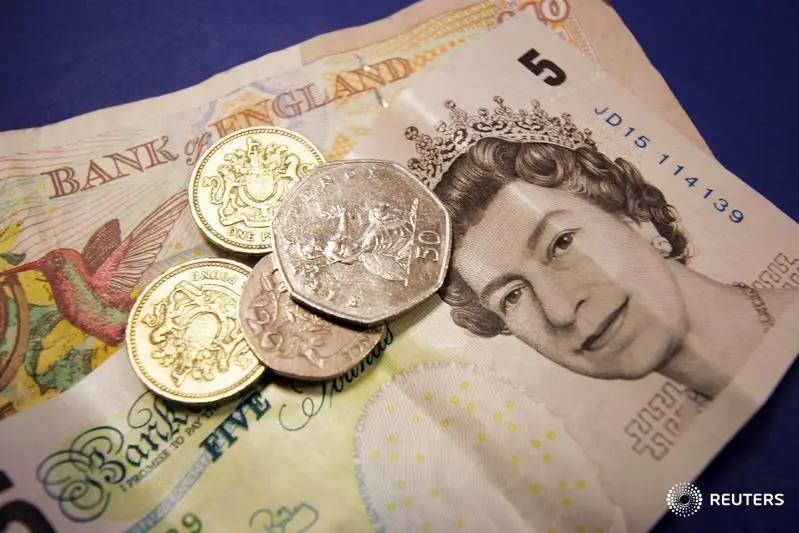PHOTO
Foreign investors raised their British government bond holdings by 54.0 billion pounds ($67.1 billion) in the last quarter of 2024, Bank of England data showed, outstripping a previous record increase of 48.3 billion pounds set in late 2020.
The record purchases show continued appetite for British debt, and the high returns on offer, at a time when rising government borrowing costs have prompted a minority of investors to raise concerns about its longer-term sustainability.
The yield on British government bonds, known as gilts, rose sharply in the final quarter of 2024. This was largely due to a global rise in yields, but also reflected lower expectations of BoE rate cuts and higher-than-expected borrowing plans in finance minister Rachel Reeves' first budget.
Benchmark 10-year gilt yields rose by 0.56 percentage points over the last quarter, the most since the first quarter of 2023.
The yield premium which 10-year gilts offered over 10-year German bonds rose to its highest since 1990 at 2.29 percentage points in December - boosting their appeal to overseas investors - though there was little change in their premium over U.S. 10-year Treasuries.
Gilt yields surged further in early January, pushing 30-year yields to their highest since 1998, as investors' worries about U.S. and British government borrowing and potentially persistent inflation temporarily increased.
They have decreased since the middle of the month and are now little changed since the start of the year.
Britain is on course to issue nearly 300 billion pounds of gilts both this financial year and next.
Thursday's BoE data on changes in foreign holdings of gilts largely reflects net purchases, although there can also be a short-term impact when gilts mature. Some foreign transactions may also be from overseas units of British-based investors.
In December alone, foreign investors increased their gilt holdings by 27.9 billion pounds, the most since December 2022's 38.3 billion pound increase.
Big rises in gilt purchases in December are common due to seasonal effects.
But there were also high levels of purchases in October and November 2024, unlike in 2022 when that period saw heavy net selling after then Prime Minister Liz Truss' "mini-budget" raised investor concerns that Britain was going to pursue a much looser fiscal policy than its peers. ($1 = 0.8042 pounds)
(Reporting by David Milliken; Editing by Alexander Smith)





















